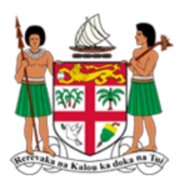Best Criminal Litigation Lawyers in Fiji
Share your needs with us, get contacted by law firms.
Free. Takes 2 min.
Or refine your search by selecting a city:
List of the best lawyers in Fiji
About Criminal Litigation Law in Fiji
Criminal litigation law in Fiji involves the prosecution and defense of individuals charged with criminal offenses. This legal field encompasses various stages, including investigations, pre-trial procedures, trial proceedings, and post-trial motions. It is essential to have a strong understanding of the laws and procedures in Fiji to navigate the criminal justice system effectively.
Why You May Need a Lawyer
There are several situations where you may require legal assistance in criminal litigation, such as being charged with a criminal offense, facing a trial, or needing to navigate the complexities of the legal system. A lawyer can provide guidance, representation, and advocacy to protect your rights and achieve the best possible outcome in your case.
Local Laws Overview
Key aspects of local laws in Fiji relevant to criminal litigation include the Criminal Procedure Code, Penal Code, Evidence Act, and other statutes that govern criminal offenses, procedures, and penalties. It is crucial to understand these laws to effectively defend against criminal charges or seek justice as a victim.
Frequently Asked Questions
1. What are the common types of criminal offenses in Fiji?
Common criminal offenses in Fiji include theft, assault, drug offenses, fraud, and sexual offenses.
2. What rights do I have if I am charged with a criminal offense?
You have the right to legal representation, the right to remain silent, the right to a fair trial, and the right to appeal a conviction.
3. How can a lawyer help me during a criminal trial?
A lawyer can provide legal advice, represent you in court, negotiate plea deals, cross-examine witnesses, and present evidence on your behalf.
4. What are the potential penalties for criminal offenses in Fiji?
Penalties for criminal offenses in Fiji may include fines, imprisonment, community service, probation, or other forms of punishment.
5. How long does a criminal trial typically last in Fiji?
The duration of a criminal trial in Fiji can vary depending on the complexity of the case, the availability of evidence, and other factors, but it generally takes several months to complete.
6. Can I appeal a criminal conviction in Fiji?
Yes, you have the right to appeal a criminal conviction in Fiji to a higher court if you believe there were errors in the trial proceedings or the judgment.
7. Is it possible to negotiate a plea deal in Fiji?
Yes, plea deals are common in Fiji, and a lawyer can help you negotiate a favorable agreement with the prosecution to reduce the charges or penalties you face.
8. How do I find a reputable criminal defense lawyer in Fiji?
You can ask for recommendations from friends, family, or other legal professionals, or contact the Fiji Law Society for referrals to qualified criminal defense lawyers.
9. What should I do if I am arrested for a criminal offense in Fiji?
Remain calm, assert your right to remain silent, and contact a lawyer as soon as possible to advise you on your legal rights and options.
10. Can legal aid services help me with my criminal case in Fiji?
Yes, legal aid services are available in Fiji for individuals who cannot afford private legal representation, and they can provide assistance with criminal cases based on eligibility criteria.
Additional Resources
For additional resources related to criminal litigation in Fiji, you can visit the Fiji Law Society, Legal Aid Commission of Fiji, and the Ministry of Justice website for information, guidelines, and support services.
Next Steps
If you require legal assistance in criminal litigation in Fiji, it is important to consult with a qualified lawyer who can provide personalized advice and representation based on your specific circumstances. Contact a reputable law firm or legal organization to discuss your case and explore your options for legal assistance.
Lawzana helps you find the best lawyers and law firms in Fiji through a curated and pre-screened list of qualified legal professionals. Our platform offers rankings and detailed profiles of attorneys and law firms, allowing you to compare based on practice areas, including Criminal Litigation, experience, and client feedback.
Each profile includes a description of the firm's areas of practice, client reviews, team members and partners, year of establishment, spoken languages, office locations, contact information, social media presence, and any published articles or resources. Most firms on our platform speak English and are experienced in both local and international legal matters.
Get a quote from top-rated law firms in Fiji — quickly, securely, and without unnecessary hassle.
Disclaimer:
The information provided on this page is for general informational purposes only and does not constitute legal advice. While we strive to ensure the accuracy and relevance of the content, legal information may change over time, and interpretations of the law can vary. You should always consult with a qualified legal professional for advice specific to your situation.
We disclaim all liability for actions taken or not taken based on the content of this page. If you believe any information is incorrect or outdated, please contact us, and we will review and update it where appropriate.
Browse criminal litigation law firms by city in Fiji
Refine your search by selecting a city.













